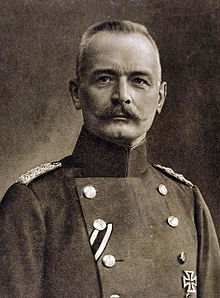(This has been delayed by injured ribs and the decision to have the Whitie Comes to America dinner at my house.)
The October focus on the Balkans continued into November, during which month one of the minor powers was eliminated from the war. On 2 November British Prime Minister Asquith declared that the independence of Serbia was an allied war aim, which was presumably an incentive for the Serbs to continue resisting, inasmuch as the country was peripheral to British interests. If so, it could not stem the Austrian-Bulgarian flood, and by 30 November the remnants of the Serbian army were streaming into Albania. Serbia was out of the war.
At the same time, more in line with the stalemate in the west the Third Battle of the Isonzo came to an end on 3 November, with 60,000 Italian and 40,000 Austrian casualties, including 20,000 dead on both sides. But never fear, General Luigi Cadorna was not discouraged, and on 10 November he initiated the Fourth Battle of the Isonzo. He seemed determined to outdo the big boys on the Western Front, where on 6 November the Second Battle of Champagne ended with no gains but 145,000 French and 72,500 German casualties. German Chief of Staff Erich von Falkenhayn commented on the offensive in his memoirs: Attempts at a mass breakthrough, even with the extreme accumulation of men and material, cannot be regarded as holding out the prospects of success.
In the Cameroons the third attempt to capture Mora was abandoned on 4 November, but two days later the allies took Banyo. Ever hear of either of these places? Meanwhile, the Anglo-Indian force in Mesopotamia continued their advance up the Tigris River towards Baghdad, only to be stopped just short at Ctesiphon, the ancient capital of the Sassanian Persian Empire. The Battle of Ctesiphon lasted from 22 to 25 November, resulting in 4600 Anglo-Indian casualties, fully 40% of the force; the victorious Turks lost perhaps 6000. General Charles Townshend retreated down the river to Kut-al-Amara, which he began to fortify. A disaster was in the offing. Incidentally, a British soldier later remarked concerning Ctesiphon: “We calls it Pistupon.”
Finally, on 8 November the Entente loaned Greece £1,600,000 in an attempt to sweeten the legally questionable presence of their forces in the country. On the last day of the month the Treaty of London, reapportioning territory in the post-war Balkans, was signed. It would be superseded by the Versailles Treaty.
In the west the low level slaughter continued, but the chateau generals were already planning the next big push.





